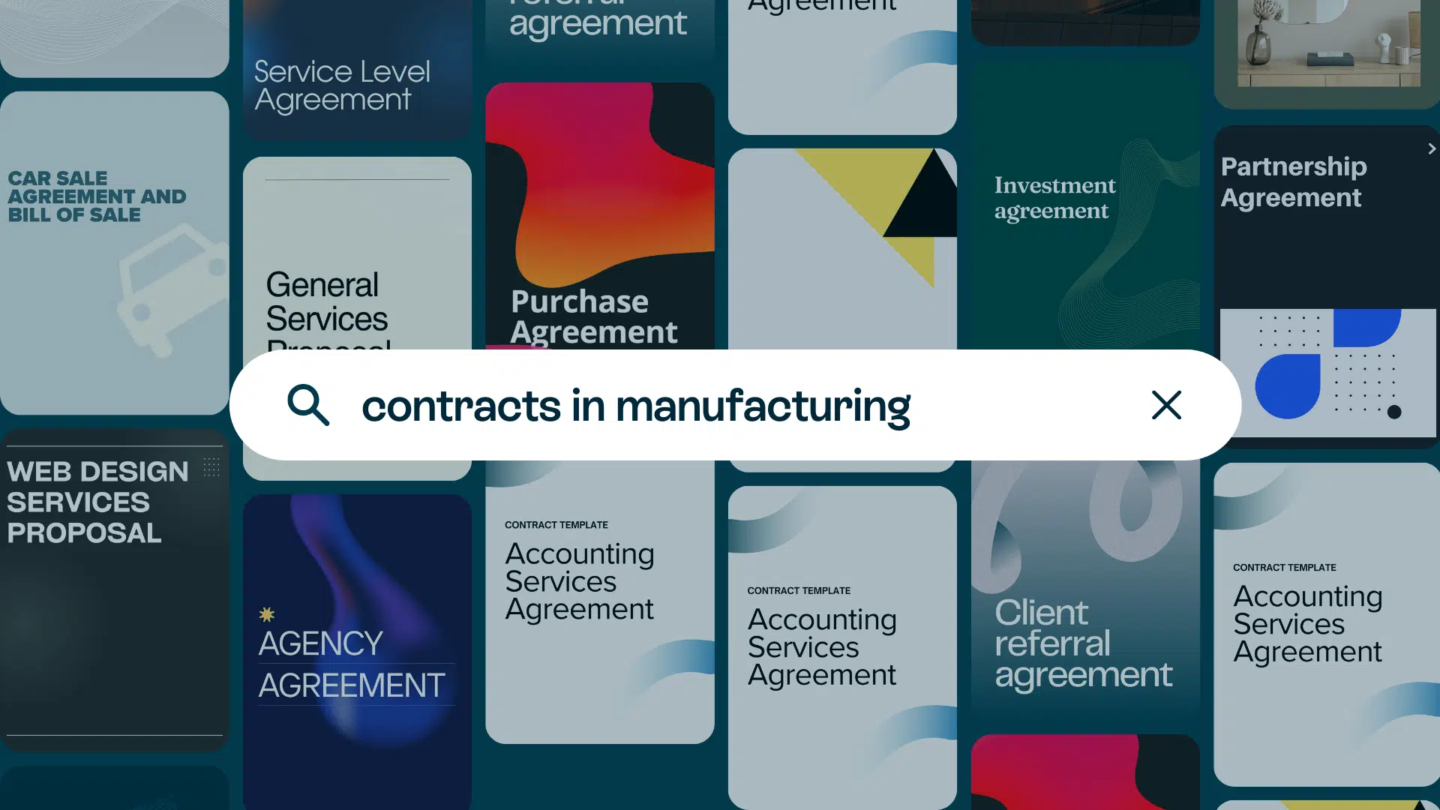Are you feeling a little lost when it comes to crafting an agency agreement template? No worries – we’ve got you covered! In this article, we’ll break down the basics of what an agency agreement is, the essential elements you need to include, and how to customize the template to fit your needs. Ready? Let’s dive in!

A quick intro to the basics of an agency agreement
At its core, an agency agreement is a legal document that outlines the terms and agreements between two parties – the principal (the person or company who hires the agent) and the agent (the person or company who agrees to act on the principal’s behalf).
Defining the purpose of an agency agreement
The purpose of an agency agreement is to establish a clear understanding of what services the agent will be providing, what compensation they will receive, and how they will be expected to perform as an extension of the principal’s business. This document is especially important in cases where the agent will be making decisions on behalf of the principal, as it outlines the scope of their authority and the responsibilities that come with it.
Read also: AI in consulting: What it is, and how it’s helping the industry

Identifying the parties involved
The first step to creating an agency agreement is to clearly identify who the parties involved are. This should include the legal names and contact information for both the principal and the agent, as well as any representatives who will be involved in the agreement.
Determining the scope of the agreement
Once you’ve identified who the parties are, it’s time to define the scope of the agreement. This section should outline the specific services the agent will be providing on behalf of the principal, as well as any limitations on their authority.
It’s important to be as specific as possible in this section, to avoid any confusion or misunderstandings later on. For example, if the agent will be responsible for marketing the principal’s products, you should specify which products they will be marketing and which marketing channels they will be using.
Additionally, you should include any deadlines or milestones that the agent will be expected to meet, as well as any reporting requirements. This will help ensure that both parties are on the same page and that the agent is held accountable for meeting their obligations.
Establishing compensation and payment terms
Another important aspect of an agency agreement is establishing compensation and payment terms. This section should outline how the agent will be compensated for their services, whether it’s a flat fee, a commission-based structure, or a combination of the two.
You should also specify how and when the agent will be paid, as well as any expenses that will be reimbursed. For example, if the agent will be traveling on behalf of the principal, you should specify who will be responsible for covering their travel expenses.
Addressing termination and renewal
Finally, it’s important to address what will happen if the agency agreement needs to be terminated or renewed. This section should outline the circumstances under which the agreement can be terminated, as well as any notice requirements.
If the agreement is set to expire at a certain date, you should specify how and when it can be renewed, as well as any changes that may be made to the agreement at that time.
Read also: Understanding B2B contracts: What you need to know

What’s key to an agency agreement template?
Now that you have a basic understanding of what an agency agreement is and what it includes, let’s dive into the essential elements that every agency agreement template should have.
Roles and responsibilities of each party
This section should outline the specific duties and responsibilities of the principal and the agent, including any deadlines or performance metrics that need to be met.
The roles and responsibilities of each party can vary depending on the nature of the agreement. For example, if the agent is representing the principal in a sales capacity, their duties may include finding and contacting potential clients, negotiating contracts, and closing deals. The principal, on the other hand, may be responsible for providing the agent with the necessary resources and support to carry out their duties effectively.
Compensation and payment terms
This section should specify how the agent will be compensated for their services, including any commission or performance-based pay structures. It should also outline the payment terms, including due dates and any late payment fees.
The compensation and payment terms can also vary depending on the nature of the agreement. For example, if the agent is working on a commission basis, their pay may be tied directly to the amount of revenue they generate for the principal. Alternatively, if the agent is working on a retainer basis, they may receive a fixed monthly fee regardless of their performance.
Agency agreement template: Duration and termination clauses
It’s important to include language that outlines the duration of the agreement, as well as any circumstances under which either party can terminate the agreement early.
The duration of the agreement can vary depending on the needs of the principal and the agent. For example, if the agent is representing the principal for a specific project, the agreement may only be in effect for the duration of that project. Alternatively, if the agent is representing the principal on an ongoing basis, the agreement may be in effect for an indefinite period of time.
Confidentiality and non-disclosure provisions
Depending on the nature of the agreement, it may be necessary to include provisions that protect confidential information or trade secrets. This section should outline what information is considered confidential, who has access to it, and how it can be used.
Confidentiality and non-disclosure provisions are particularly important in agreements where the agent will have access to sensitive information about the principal’s business. This can include financial information, customer data, and trade secrets. By including these provisions in the agreement, the principal can ensure that their confidential information is protected from unauthorized disclosure.
Intellectual property rights
If the agent will be creating original content or intellectual property on behalf of the principal, it’s important to include language that clearly outlines who owns the rights to this content.
Intellectual property rights can be a complex issue, particularly in agreements where the agent is creating original content or products on behalf of the principal. By including language that clearly outlines who owns the rights to this content, the principal can avoid any disputes or legal issues down the line.
Liability and indemnification
This section should outline who is responsible for any damages or losses that occur as a result of the agent’s actions, as well as who will be responsible for legal fees in the event of a lawsuit.
Liability and indemnification provisions are particularly important in agreements where the agent will be representing the principal in a legal or financial capacity. By including these provisions in the agreement, the principal can ensure that they are protected from any damages or losses that may occur as a result of the agent’s actions.
Read also: Electronic signature: The benefits and how it works
How to customize your agency agreement template
Now that you have a solid understanding of the essential elements of an agency agreement, it’s time to customize the template to fit your specific needs.
Tailoring the template to your specific industry
Depending on what industry you’re in, there may be specific regulations or legal requirements you need to include in your agreement. Be sure to research any applicable laws or guidelines to ensure your agreement is compliant.
Incorporating local laws and regulations
Similarly, it’s important to ensure that your agreement complies with any local laws or regulations that may be in place. This might include state or municipal regulations, or industry-specific regulations.

Addressing unique business requirements
If your business has unique requirements or circumstances that you need to address in your agreement, be sure to include this information in a separate section. This might include anything from specialized payment terms to specific performance metrics.
And there you have it – a step-by-step guide to writing your very own agency agreement template! By following these guidelines and customizing the template to fit your specific needs, you can rest easy knowing that your agreement is thorough, compliant, and protects both you and your business partner.
Do you want to get started with contracts like these, and many more types? Click here to try Oneflow today.







